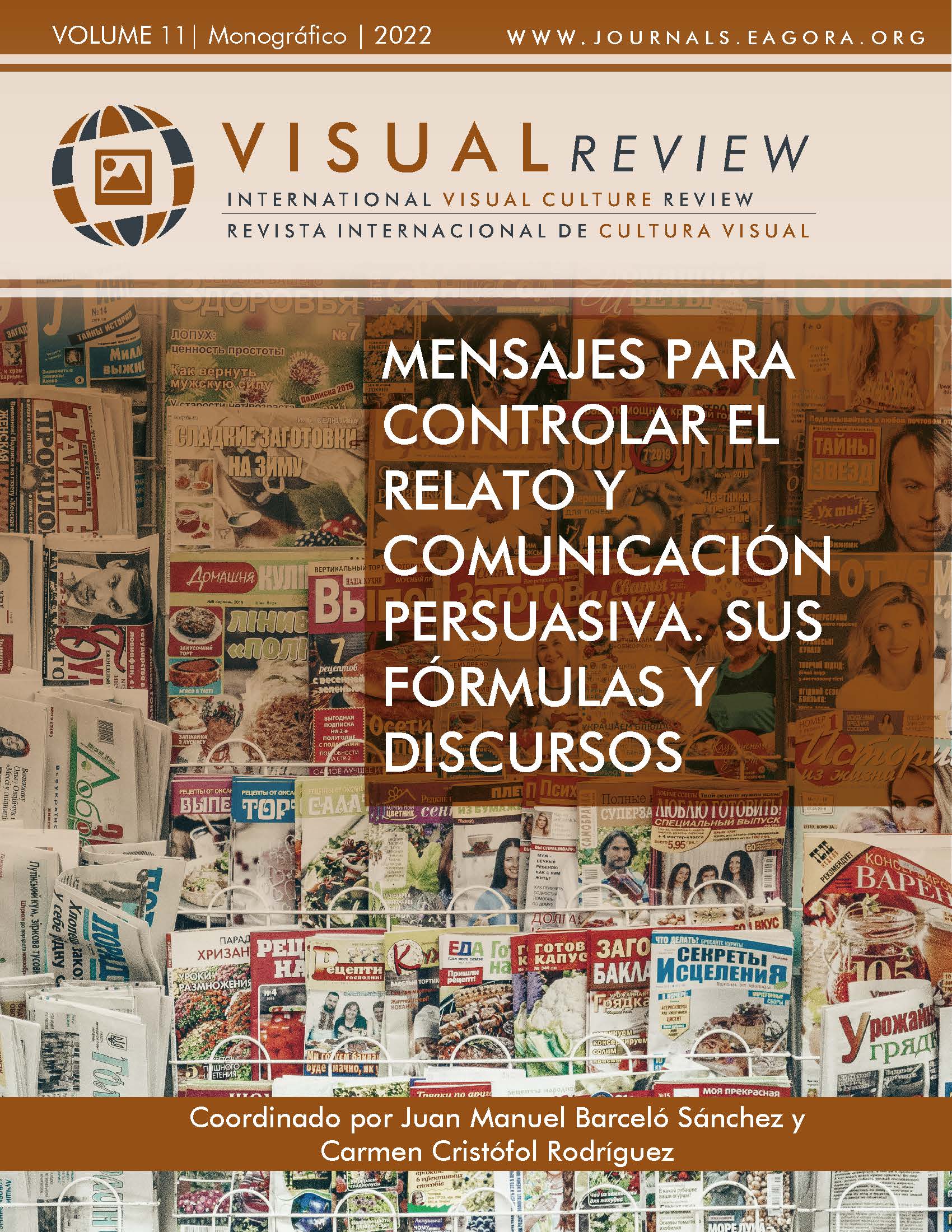Rational myths and institutional logics for catholic school analysis
Influences on cultural and behavioral organizational constructing
DOI:
https://doi.org/10.37467/revvisual.v9.3665Keywords:
Rational myths, Institutional logics, New institutionalism, Institutionalization, Organizational behavior, Catholic School, Ethnomethodological studyAbstract
The present is a qualitative, ethnomethodological study, where preliminary results of the research carried out in 23 Catholic schools in Mexico are presented, the purpose was to explain, from the approach of the new sociological institutionalism, how myths and institutional logics influence the construction of organizational behavior. Through interviews, field observation, and documentary review, the data were triangulated and constants were identified, both consistency and contradiction between the three levels of social theory: individuals, organizations, and institutions, and the three dimensions of institutional logics: structural, normative and symbolic.
Downloads
Global Statistics ℹ️
|
429
Views
|
427
Downloads
|
|
856
Total
|
|
References
Arthur, W. B. (1994). Increasing returns and path dependence in the economy. The University of Michigan Press. DOI: https://doi.org/10.3998/mpub.10029
Clegg, S. R., Hardy, C., & Nord, W. R. (1996). Handbook of organization studies. SAGE Publications.
Corbin, J., & Strauss, A. (2015). Basics of Qualitative Research. Techniques and procedures for developing grounded theory. (4a ed.). Sage.
Dominicos (s.f.). Lemas y escudos. Recuperado el 28 de noviembre de 2021 de https://www.dominicos.org/quienes-somos/historia-de-los-dominicos/lemas-y-escudos/
Drewermann, E. (1995). Clérigos. Psicograma de un ideal. (Trad. D. Mínguez Fernández). Editorial Trotta.
Etzioni, A. (1997). Organizaciones modernas. [Trad. C. Moreno Cañadas]. Limusa Noriega Editores.
Francisco. (s.f.). Pacto Educativo Global. Instituto Nacional de Estadística y Geografía. (2021). Encuesta para la Medición del Impacto COVID-19 en la Educación (ECOVID-ED) 2020. Nota Técnica. Segunda Edición. INEGI. https://1bestlinks.net/ohMED
Garfinkel. H. (2006). Estudios en etnometodología. (Trad. H. A. Pérez Hernáiz). Anthropos.
Jackall, R. (1988). Moral mazes. The world of corporate managers. Oxford University Press. DOI: https://doi.org/10.1007/BF01390690
Manenti, A. (1983). Vivir en comunidad. Aspectos psicológicos. (Trad. J. J. García Valenceja, 4ª ed.). Editorial Sal Terrae.
Martínez Sánchez, J. J. (2010). El aprendizaje sagrado: mitos, ritos y mística en la literatura occidental. Alicante.
Martínez Soto, L. (2020). Lógica económica e identidad organizacional Iglesia de Jesucristo Vivo para el mundo 2016-2020 [Tesis doctoral, Universidad Autónoma Metropolitana].
Meyer, J. W. (1977). The Effects of Education as an Institution. American Sociological Review, 83(1), 340-363. http://www.jstor.org/stable/2777763?origin=JSTOR-pdf DOI: https://doi.org/10.1086/226506
Meyer, J. W., & Rowan, B. (1977). Institutionalized Organizations: Formal Structure as Myth and Ceremony. American Sociological Review, 83(2), 340-363. http://www.jstor.org/stable/2778293?origin=JSTOR-pdf DOI: https://doi.org/10.1086/226550
Meyer, J. W., Scott, W. R., & Deal, T. E. (1979, 2-3 de marzo). Institutional and Technical sources of organizational structure explaining the structure of educational organizations [Conferencia]. Human Service Organizations at the Center for Advanced Study in the Behavioral Sciences, Stanford, CA, Estados Unidos de América.
Naciones Unidas. (s.f.). Acerca de la Agenda 2030 para el Desarrollo Sostenible. https://1bestlinks.net/gaKxH
Powell, W. W., & DiMaggio, P. J. (1999). El nuevo institucionalismo en el análisis organizacional. (Comps.). Fondo de Cultura Económica.
Scott, W. R. (2014). Institutions and organizations: ideas, interests, and identities. (4a ed.). SAGE Publications. DOI: https://doi.org/10.3917/mana.172.0136
Scott, W. R. (2008). Approaching Adulthood: The Maturing of Institutional Theory. Theory and Society, 37(5), 427-442.http://www.jstor.org/stable/40345595?origin=JSTOR-pdf DOI: https://doi.org/10.1007/s11186-008-9067-z
Thornton, P. H., & Ocasio. W. (2008). Institutional logics. En R. Greeenwood et al. (Eds.), The SAGE handbook of organizational institutionalism. (pp. 99-129). DOI: https://doi.org/10.4135/9781849200387.n4
Thornton, P. H., Ocasio, W., & Lounsbury, M. (2012). The institutional logics perspective. A new approach to culture, structure, and process. Oxford University Press. DOI: https://doi.org/10.1093/acprof:oso/9780199601936.001.0001
Torres Septién, V. (1997). La educación privada en México. El Colegio de México DOI: https://doi.org/10.2307/j.ctv5138wq
Tracey, P. (2012). Religion and Organization: A critical review of current trends and future directions. The Academy of Management Annals, 6(1), 87-134. https://doi.org/10.5465/19416520.2012.660761 DOI: https://doi.org/10.5465/19416520.2012.660761
Wodon, Q. (2021). Global Catholic Education Report 2021: Education Pluralism, Learning Poverty, and the Right to Education. Global Catholic Education, OIEC, IFCU, OMAEC, and UMEC-WUCT. https://1bestlinks.net/QoqOI
Zucker, L. G. (1977). The role of institutionalization in cultural persistence. American Sociological Review, 42(5), 726-743. http://www.jstor.org/stable/2094862 DOI: https://doi.org/10.2307/2094862
Downloads
Published
How to Cite
Issue
Section
License
Those authors who publish in this journal accept the following terms:
-
Authors retain copyright.
-
Authors transfer to the journal the right of first publication. The journal also owns the publishing rights.
-
All published contents are governed by an Attribution-NoDerivatives 4.0 International License.
Access the informative version and legal text of the license. By virtue of this, third parties are allowed to use what is published as long as they mention the authorship of the work and the first publication in this journal. If you transform the material, you may not distribute the modified work. -
Authors may make other independent and additional contractual arrangements for non-exclusive distribution of the version of the article published in this journal (e.g., inclusion in an institutional repository or publication in a book) as long as they clearly indicate that the work was first published in this journal.
- Authors are allowed and recommended to publish their work on the Internet (for example on institutional and personal websites), following the publication of, and referencing the journal, as this could lead to constructive exchanges and a more extensive and quick circulation of published works (see The Effect of Open Access).














